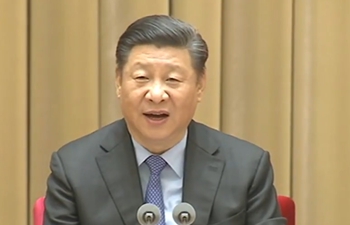U.S. Fed won't begin to consider raising rates until inflat
U.S. Federal Reserve Vice Chairman Richard Clarida said on Wednesday that the central bank won't consider raising interest rates from near zero until inflation has hit the 2-percent target.
"We're not going to even begin to think about lifting off, we expect, until we actually get observed inflation -- and we measure it on a year-over-year basis, equal to 2%," Clarida said in an interview with Bloomberg Television.
"We now think that to anchor inflation expectations at 2%, we need, coming out of recessions, to spend some time above 2% to balance off those times that we've been below," Clarida said. "We don't want it to be a fleeting, you know, one quarter and done."
Clarida noted that it would take several years before the Fed starts raising rates, as the U.S. economy is recovering from the COVID-19 induced recession. "The economy is recovering robustly, but we are still in a deep hole," he said.
The Fed last week kept its benchmark interest rate unchanged at the record-low level of near zero and signaled to maintain this target range until at least 2023, noting that the path of the economy will depend significantly on the course of the coronavirus.
Clarida's remarks came after Charles Evans, president of the Federal Reserve Bank of Chicago, said on Tuesday that the Fed could raise rates before inflation averages 2 percent for some period of time.
"Clarida's comments seem designed to counter possible misperceptions generated by Evans yesterday, when he said that, in principle, the Fed plan allows for rate hikes before inflation averages 2%. No need for any doubts at the moment," Roberto Perli, a former Fed staffer and now head of global policy research at Cornerstone Macro, tweeted Wednesday.
The Fed announced in August that the central bank will seek to achieve inflation that averages 2 percent over time, a new strategy for carrying out monetary policy to help fight the COVID-19 pandemic and boost economic recovery.














